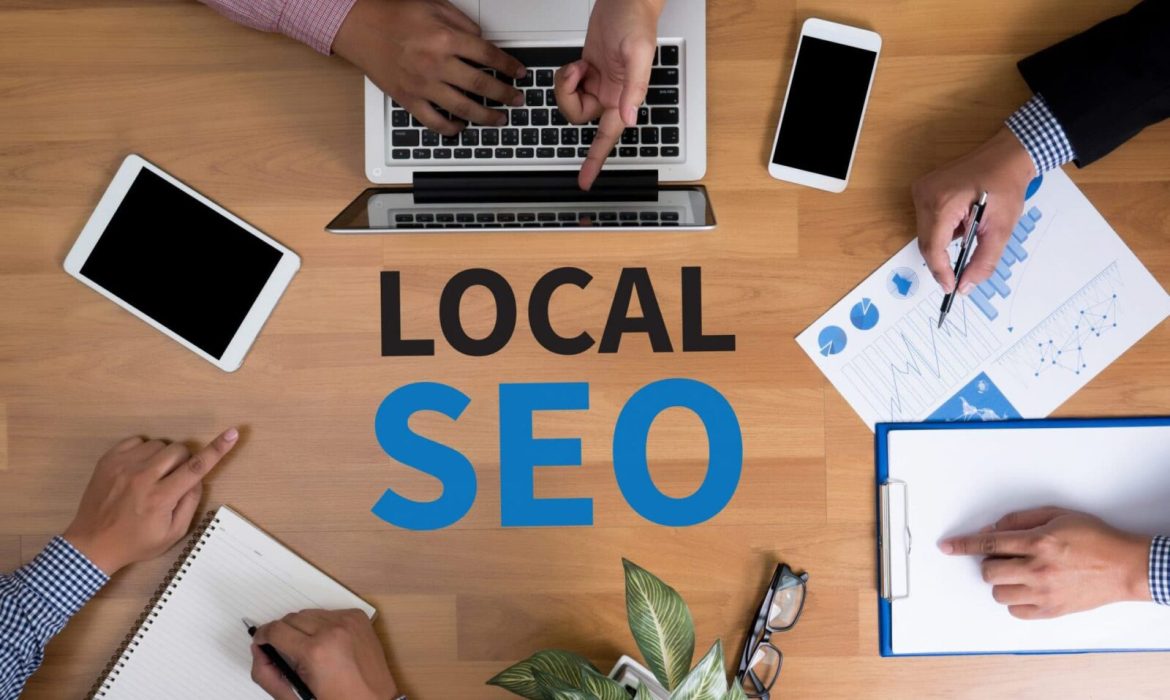We live in an age where word-of-mouth advertisements are no longer the most or the only effective way to attract customers to your business. With your business online and your customers online, your marketing Local SEO strategies and tools are online as well. Online searches are considered one of the defining pillars for developing your online business. It is where your customers find your products or services and where you can reach them. In comes SEO and all that.

Get Free Consultancy Right Now!
you may never have imagined.
But this covers customers who are online looking for your business. What about the ones that reside in your area or locality? Did you know that 97% of Google users have searched online to discover a local business? Or, how 72% of searches made for local businesses resulted in customers buying their products or services? These insights emphasize just how important it is to cater to your local customers since they may be a lot and are not receiving the attention they deserve.
If your online business doesn’t show up in local searches, it is likely missing out on valuable and loyal customers and website traffic. This is where you turn to local SEO to save the day. Local SEO is essential for you to strengthen your business locally, remain relevant, and continue developing it. If you are not familiar with local SEO, learning about what it is, who is it for, and some of its effective strategies can help you cater to your local customers who are missing out on your products or services.
What Is Local SEO and Who Needs It?
Local SEO, as its name suggests, is part of your overall SEO that involves increasing your online presence through optimization techniques so that your online business appears in searches made locally. It targets your local audience by enhancing your visibility through various practices.
It is vital for online businesses to create a local SEO strategy in order to develop a loyal customer base that is local to them, which is key to further growing it. If you don’t have your local customer supporting you and buying your products or services, other online customers aren’t going to as well. Almost all business types can benefit from Local SEO Strategies, among which some common ones are:
- Small or local businesses
- Multi-local companies or franchises
- Agencies or consultancies
- Service-area businesses (SABs)
- Local-client based businesses
Five Effective Local SEO Strategies You Need to Know
Now with the importance of local SEO established and out of the way, you can benefit a lot from learning about the most effective local SEO strategies. Here are some of the most popular and successful local SEO techniques you can implement to attract your local customers:
1. Optimizing Your Google My Business Profile (GMB)
A Google My Business Profile is a free service provided by Google that you can use to create a professional profile for your online business and display your relevant information so local customers can find you easily. To support local businesses, Google now displays the GMB profiles of businesses as the first part of a search engine result page (SERP). These GMB profiles appear in the top search box if a search is made with the keyword “near me”.
For example, if you are an online travel agency, and your local customer searches “travel agencies near me”, your GMB profile would be the first one to show up in that top box. You can provide your online business’s name, logo, descriptions, photos of your products or services, contact information, address lines, reviews, and more. If your GMB profile is optimized (has correct and updated information that matches your website, reviews, relevant keywords, etc), you are likely to be featured on the top list of relevant businesses on a SERP of a local customer.
2. Conducting Local Keyword Research
When targeting local markets, local keywords are crucial to search engine optimization. A local keyword is a search phrase containing a location keyword, such as a county, state, or country name. Some keywords do not contain an actual location, but instead contain words such as “near me,” “nearby,” and “close by.” Google interprets such keywords as being geographically focused.
If your business keyword appears in local searches, you will rank high in the SERPs. It is essential to research local customer browsing patterns, frequently visited websites, and search terms. If you know how your potential clients find information online, it becomes easier for you to incorporate relevant keywords across all your platforms. Adding a location-related phrase will help Google recognize the site as locally targeted.
3. Building A Quality Link Structure
Navigation on a page and user experience is dependent on link structure. SEO also relies heavily on inbound links from other authority websites. Quality internal and external links are essential for an SEO-friendly link structure. Links are valuable for Google and other search engines since they indicate your authority and the worth of your website and its content. You can think of Google as a popularity contest. The more links you receive, the more Google values you.
It can be challenging to build links, and the wrong links can hurt your SEO. Using personal networks like the Chamber of Commerce, licensing bureau, resellers and vendors, trade associations, and manufacturers is one way to get started. Another option is to sponsor community events and webinars. You can build new relationships and networks by actively participating in the community, which results in higher-quality inbound links and better local SEO solutions.
4. Optimizing for Online Directories
Businesses are cited and mentioned in directories. With modern online guides, you can include more information about your locations, addresses, products, and services. There are many excellent online directories available, such as Yelp, HomeAdvisor, Yellow Pages, Better Business Bureau, and Whitepages.
Google strongly favors online businesses that are registered in online directories, since it testifies to their online presence. Not only does registering for a spot in online directories help Google increase your rankings, but also enhances your visibility and makes it easier for your local customers to find you.
5. Perform a Local SEO Audit
To increase your local visibility, you should perform an audit first. Local SEO audits evaluate several optimization factors and determine if they are performing well for you. This process involves evaluating local keywords, links, content, website features, user experience, and site speed. The objective is to identify current SEO metrics and their performance as well as strategies to improve your ranking.
You can conduct various audits, including Google business profile audits, search console audits, on-page SEO audits, directory audits, and competitor analyses. Audits show you what needs to be changed and where improvements can be made. You can also evaluate your website’s performance to determine whether your efforts have yielded the desired results. Based on the results of the audit, your SEO team determines the next steps for better results.
It’s Never Too Late to Localize Your SEO
When you start learning about search engine optimization, you realize that it is not all that complex. Once you understand that Google just wants to provide a fast and smooth experience to its users. If your website can provide that, Google will pay you back with high rankings and better visibility, ultimately increasing your traffic and customer acquisition. You can always contact Search Boosters to assist you with the process and strategies for gaining better rankings, increased traffic, and a steady flow of customers.




